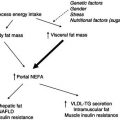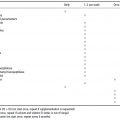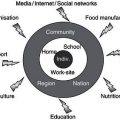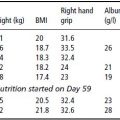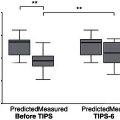- The four principals of medical ethics are autonomy, nonmaleficence, beneficence, and justice.
- Artificial nutrition and hydration is a medical treatment which can be withheld or withdrawn if it is in the best interests of the patient.
- The concept of capacity and best interests has been defined in law through the Mental Capacity Act 2005.
- The application of ethical principles to artificial nutritional support can guide clinical decision-making.
10.1 Introduction
Medicine is inherently a moral enterprise; the very practice of medicine involves making decisions between good and bad, right and wrong. This has been part of the practice of medicine for centuries. Nonetheless, it is only in relatively recent years that the principles of ethics applied to medicine have come to dominate contemporary practice. Traditionally, doctors are seen as experts in addressing the ‘can we?’ questions, which are technical questions, but the ethics questions, the ‘should we?’ questions, are comparatively new to clinical practice.
The term ‘bioethics’ was coined in the early 1970s to denote a new, rapidly expanding discipline in medicine. There were many stimuli for this growth, the most important of which can be summarised as follows:
- The explosion of medical technology and pharmacology. As patients, researchers, and technicians discover newer and improved methods of treatment, each development is matched by an extension of the ethical dilemmas that surround each new innovation.
- The changing doctor–patient relationship. Traditionally, the paternalistic physician unilaterally made decisions about what was appropriate for a particular patient. Paternalism, however, has been seen to be flawed and current case law in most countries recognises the essential principle of autonomy and the fact that the competent patient is empowered to participate in medical decisions.
- Concerns about cost containment. Medical decisions used to be made by one physician, who would provide the professional service almost irrespective of cost. This inevitably resulted in dramatic increases in utilisation of new medical technologies. As third-party payers (insurance companies, governments, health authorities) became alarmed about increasing costs, they demanded not only accountability but also some voice in decisions about the use of expensive technology. In addressing this dilemma about costs, there are two different perspectives. The medical-practice perspective attempts to maximise the good of the individual patient. This perspective looks at personal concerns on a case-by-case basis, and is particularly concerned about the ethical principles of beneficence (doing good for the patient) and autonomy (the patient’s right to self-determination). In contrast, the health-policy perspective seeks to maximise the good of society rather than of the individual. This perspective reflects the importance of the ethical principles of utilitarianism and justice.
The issue of nutritional support in clinical practice exemplifies these changing attitudes to ethical dilemmas. The administration of artificial nutrition and hydration (ANH) was originally intended as a temporary bridge to the restoration of a patient’s normal digestive functioning. It is now, however, often given to patients who have irretrievably lost all higher brain function. It is a strange paradox that society and many members of the medical profession frequently recommend nutritional support in those with severe neurological disease or terminal illness but at the same time fail to recognise or treat malnutrition in hospitalised patients. An analysis of the ethical issues surrounding malnutrition and nutritional support serves to emphasise not only the changing face of bioethics but also how the ethical issues themselves have influenced the clinical application of nutritional support techniques.
10.2 Brief history of medical ethics
Hippocrates is considered the father of medical ethics. He is thought to have been born around 460 BC, but little is known of his life, and there may, in fact, have been several men of this name. Whether Hippocrates was one man or several, the works attributed to him mark the stage in Western medicine at which disease was coming to be regarded as a natural rather than a supernatural phenomenon and doctors were encouraged to look for physical causes of illness. Hippocrates laid much stress on diet in the treatment of disease and the use of few drugs. He emphasised the importance of the natural history of disease, recognising the futility of treatment in many instances. Perhaps his greatest legacy was the charter of medical conduct embodied in the so-called Hippocratic oath, which has been adopted as a pattern for physicians throughout the ages. It was not strictly an oath, but rather an ethical code or ideal, an appeal for right conduct. In one or other of its many versions, it has guided the practice of medicine for more than 2000 years.
The fundamental tenets of the Hippocratic tradition were to do away with suffering, to lessen the violence of disease, and to refuse to treat those who were overwhelmed by their disease, in the realisation that in such cases medicine or treatment was powerless. Nontreatment was not considered to violate the concept of doing no harm because the physicians accepted a limit to their abilities. Provision of food and water was not deemed ‘necessary’ in the face of overwhelming disease. The Hippocratic concepts of beneficence – the providing of benefit – and nonmaleficence – the avoidance of harm – remain fundamental to contemporary medical ethics.
This Hippocratic tradition remained largely unchallenged for the best part of the next 2 millennia. Comparatively little was written on the subject of ethics until the fifteenth and sixteenth centuries, when contemporary theologians recorded their thoughts for posterity. The sixteenth-century theologian Bonez, for example, was the first to expound the theory of ordinary versus extraordinary treatment in prolonging life. It is important to emphasise here that ‘extraordinary’ does not refer to the techniques employed but rather to the condition of the patient. Historically, even the most simple remedy was deemed extraordinary if it offered no hope to the patient. Such remedies were, therefore, morally optional. Even food and water were considered to be extraordinary therapies and therefore, as in the Hippocratic tradition, morally optional.
The British physician Thomas Percival was arguably the first to formulate a doctrine of medical ethics. In 1803 he published a treatise entitled Code of Institutes and Precepts Adapted to the Professional Conduct of Physicians and Surgeons. This treatise was to be the most influential document on ethics on both sides of the Atlantic for over 100 years. It work served as a prototype for the American Medical Association’s first code of ethics in 1847. Percival believed that the welfare of the patient was governed by the good and virtuous behaviour of doctors. He believed in the assets of a strong interprofessional relationship achieved through the propriety and dignity of the conduct of doctors. His was the philosophy of the doctor–doctor relationship: the doctor knows best. This philosophical approach to medical care is termed ‘paternalism’.
While there are many different aspects to paternalism, the fundamental principle of this philosophy is the presumption that the doctor is in the best position to make decisions on behalf of the patient. Percival argued that nonmaleficence and beneficence fix the physician’s primary obligations and triumph over the patient’s preferences and rights in any circumstance of serious conflict. It was accepted that doctors determined by themselves, or in conjunction with colleagues, the most appropriate care for their patients. This rendered unnecessary the inconvenience of discussing with either the patient or their surrogates the relative merits or demerits of any given therapy. Percival failed to foresee the power of the principles of autonomy and distributive justice, which in the twentieth century became ubiquitous in discussions of biomedical ethics.
One catalyst to the dramatic shift away from paternalism towards acceptance of the critical importance of autonomy was the publication of the Nuremberg Code, which followed the unpleasant discovery of human experiments performed during World War II. The doctor–doctor relationship was seen to be flawed and the Nuremberg Code established the importance of the doctor–patient relationship. Implicit in this is the recognition of a patient’s right to self-determination: the right to know, the right to choose, and the right to be informed.
Another important principle in contemporary ethical debate relates to justice. Common to all theories of justice is a minimal requirement that equals are treated equally, a concept originally attributed to Aristotle. These days the principle of distributive justice refers to fair, equitable, and appropriate distribution in society, determined by justified norms that structure the terms of social cooperation. Most governments today and certainly all democracies would claim to support the principles inherent in distributive justice.
10.3 Medical ethics: the four-principle approach
From the foregoing discussion, it can be seen that four principles underpin present approaches to medical ethics (Box 10.1):
- Autonomy is the principle of self-determination and is a recognition of patient rights. This is now the preeminent theme in law in most democratic states.
- Nonmaleficence is the deliberate avoidance of harm.
- Beneficence is the concept that the patient is provided with some kind of benefit.
- Justice is the fair and equitable provision of available medical resources to all.
Application of these four principles offers a systematic and relatively objective way to approach ethical dilemmas. The advocates of this ‘four-principle’ approach to biomedical ethics stress that these principles should be seen not as specific precise action guides that will inform doctors of the appropriate action for any circumstance, but rather as a framework of virtues or values that are relevant to ethical debate. It is important to note that there are alternative ethical approaches, including virtue-based theories, the ethics of caring, casuistry, narrative ethics, and others. These are outwith the scope of this chapter and the interested reader is referred to standard texts on ethical theory and moral philosophy.
Analysis of ethical dilemmas employing principalism as outlined above results in three common themes that distinguish different individuals’ perspectives on ethical debate:
- The duty-based moralist is concerned predominantly with the intrinsic merits or otherwise of a medical decision, rather than its consequences. A wholly committed duty-based moralist would support the sanctity of life at all costs.
- The utilitarian or goal-based moralist requires the doctor to judge the general aggregate of good according to the consequences of an action rather than the act itself. Thus, this doctor would stand by the principles of a controlled clinical trial, thereby justifying the morbidity and even mortality of a few patients by the potential benefit to be gained by a majority of patients.
- The rights-based moralist is, as already pointed out, the dominant contemporary theme and is now the fundamental principle of medical law. This doctor would condemn an action if it wronged someone or if it violated the right of a patient to determine their own destiny.
Application of these themes to the issue of nutritional support gives very different recommendations for treatment. The duty-based moralist would always feed the patient, whatever the anticipated outcome, on the basis that this was the right and responsibility of the doctor. The goal-based or utilitarian doctor would feed when appropriate in their healthcare setting and if the results of such intervention were justified on the basis of scientific evidence. The rights-based moralist would argue that the patient should always be offered nutritional support and that, if requested by the patient on the basis of information given, the moral responsibility must be to provide nutritional support. Equally, if the patient or their surrogate refuses nutritional support, the patient’s wishes must be respected.
Obviously there is some conflict between these three themes, as well as with the four principles of autonomy, beneficence, nonmaleficence, and justice. These conflicts serve to emphasise that ethics is a process of reasoning whereby a morally respectable and defensible position can be reached which protects the best interests of the patient. There are no absolutely satisfactory resolutions of ethical dilemmas and the most that one can hope to achieve is a balance between the conflicting interests and goals of different individuals involved in patient care. While this is a very simplistic approach to a complex area, it is hoped that the foregoing discussion will have provided the reader with an insight into how these ethical principles have evolved and given some feeling for their relative importance.
10.4 Definitions and ethical terms
The definitions and terms described here are adopted from the British Medical Association (BMA)’s publication Withholding and Withdrawing Life-prolonging Medical Treatment (BMA, 2007). This text is highly recommended.
Oral nutrition and hydration: ‘basic care’
The provision of food or water by mouth, whether simply by moistening a patient’s mouth for comfort, or by the use of cup, spoon, or other assistance, is deemed part of basic care. ‘Basic care’ means those procedures deemed essential to keeping a patient comfortable. It is a health professional’s duty to ensure the provision of basic care to all patients unless actively resisted by the patient. Food and water should therefore always be offered, unless the process of feeding produces an unacceptable burden to the patient. Many patients, such as babies, young children, and people with disability, may require assistance with feeding but retain the ability to swallow if the food is placed in their mouths; this forms part of basic care. Evidence suggests that when patients are close to death, however, they seldom want nutrition or hydration, and its provision may exacerbate discomfort and suffering. Good practice should include moistening the mouth as necessary to keep the patient comfortable.
Artificial nutrition and hydration
The term ‘artificial nutrition’ should be used specifically for those techniques for providing nutrition that are used to bypass a pathology in the swallowing mechanism. All parenteral and the majority of enteral feeding techniques (except perhaps sip-feeding oral supplements) are forms of provision of artificial nutrition. In North America and in most European countries, ANH is considered a medical treatment, as opposed to simply an aspect of basic care, and therefore subject to same ethical constraints in its instigation or withdrawal, just like any other life-prolonging therapy. Some people continue to argue that tube feeding should be regarded as part of basic care, while others have made a distinction between the insertion of a feeding tube, which is classed as treatment, and the administration of fluid or nutrients through a tube, which they consider basic care. If this view were generally accepted then decisions not to insert a feeding tube or not to reinsert it if it became dislodged would be legitimate medical decisions, whereas a decision to stop providing nutrition through an existing tube would not. This distinction is not generally accepted.
Consent and competence
All individuals have the right to agree to or decline medical treatment, including nutritional support. For consent to be valid in law, three principles must be fulfilled: the consent must be informed, the patient must be competent to make the decision, and the decision must be voluntary. The amount of information given to the patient and how this is delivered will vary depending on the clinical situation and requires careful judgement on the part of the doctor. The patient must understand the nature of the nutritional support and the benefits and risks of the intervention. There is no definite legal guidance on the level of risk that needs to be disclosed to patients, but serious complications, such as pneumothorax or haemorrhage in the placement of feeding lines, must be discussed. It is customary to take written consent for invasive procedures, such as central-line or percutaneous endoscopic gastrostomy (PEG) placement, as evidence that consent has been given. More often, consent for nutritional support is given verbally, and the concept of ‘implied consent’ is well established in law. It is important to remember that patients have the right to withdraw consent at any time.
Many decisions relating to ANH occur in patients who have a temporary or permanent impairment of cognitive function, for example after a stroke. For many years, health professionals have made treatment judgements based on the notion of patients’ ‘best interests’, influenced by the UK General Medical Council’s guidelines. This involves balancing the treatment options, taking into consideration any preferences stated by the patient in the past – either through an advanced directive or from evidence given by a third party who knows the patient well – and choosing the intervention which least restricts the patient’s future choices. The concept of what constitutes capacity and ‘best interest’ has now been defined in law through the Mental Capacity Act 2005 (MCA). The five main principles of the act are listed in Box 10.2. The MCA states unequivocally that a doctor must assume that the patient has the capacity to make decisions unless a lack of capacity has been clearly demonstrated (Box 10.3). The act acknowledges that patients with impaired mental capacity may still have the ability to make some decisions about their care and states that efforts should be made to facilitate this where possible. This idea of ‘enhancing capacity’ may involve the treatment of intercurrent illness to resolve an acute confusional state or the use of simple visual aids to assist patient comprehension.
Advanced decisions/directives/proxies
Stay updated, free articles. Join our Telegram channel

Full access? Get Clinical Tree


